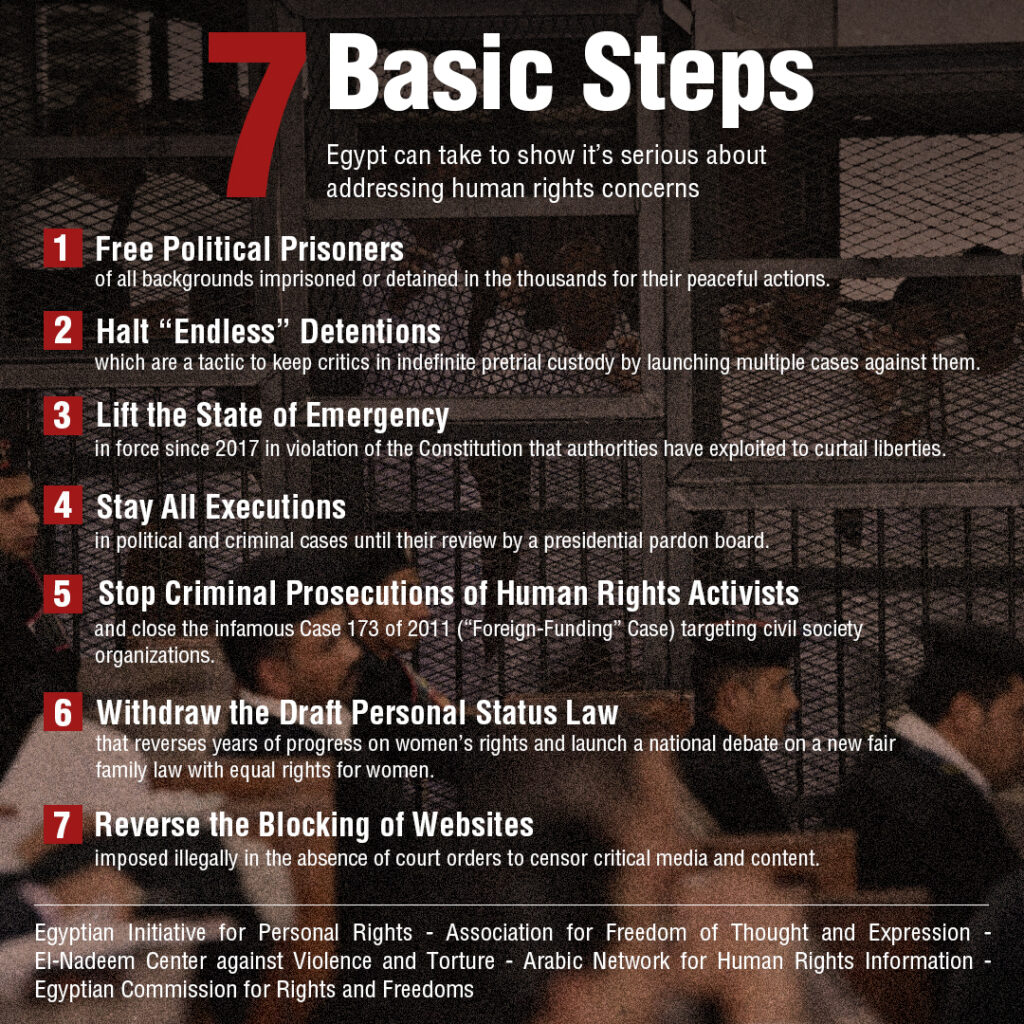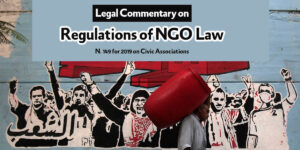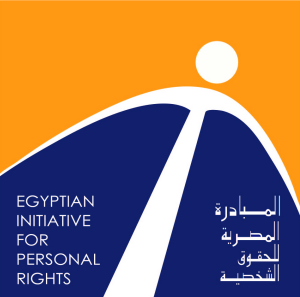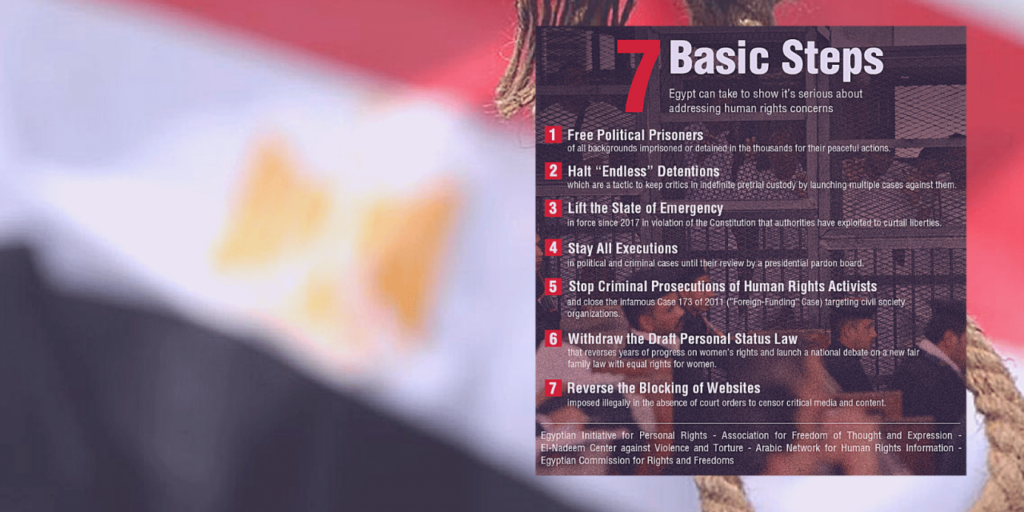
Egyptian Initiative for Personal Rights
Top U.S. diplomat Antony Blinken said on Monday that Egypt had more work to do on human rights as he met with Egyptian Foreign Minister Sameh Shoukry amid calls for Washington to take a tougher stance on the country’s record. The two met ahead of a U.S.-Egypt Strategic Dialogue in Washington, the first such talks since President Joe Biden took power pledging to put human rights and democracy at the center of his foreign policy.
Democracy advocates today urged the administration to reinforce the human rights conditions that it had placed on the release of $130 million of military aid for Cairo.
Noting that human rights are on the agenda the U.S.-Egypt Strategic Dialogue taking place in Washington, DC, on November 8–9, members of the bipartisan Working Group on Egypt called on the U.S. delegation to “speak forthrightly about Egypt’s appalling human rights record and press the Egyptian delegation on the urgent need for meaningful improvements.”

Credit: FIDH
“The administration should make plain that it has no intention of reversing its decision [on aid conditionality] and that it expects Egypt to meet these benchmarks—and that failure to do so will result in the forfeiture of the suspended assistance,” said the Working Group, whose members (see below) include National Endowment for Democracy (NED) chairman Kenneth Wollack. RTWT
Egypt has taken several steps to get ahead of public and private Biden administration calls for human rights improvements by releasing a handful of political prisoners, announcing a National Strategy for Human Rights (albeit to mixed reviews), and lifting the state of emergency that Egypt has operated under since 2017, which gave the government broad authority for arrests and detentions, the Atlantic Council’s Allison Nour observed. These are small steps where broad structural changes are needed, are far short of what many human rights activists would like to see, and could easily be reversed by the Egyptian government, she added.
“Just as we raise human rights, just as we raise our values. These two things, they’re not separate, They’re inextricably linked,” said U.S. State Department Spokesman Ned Price in response to a question about withholding $130 million of U.S. aid to Egypt over human rights concerns, notes analyst Zvi Bar’el. “If we don’t stick up for our values, if we don’t stick up for human rights, we’re not sticking up for our interests. We recognize that, and we can do both.”
But Biden’s advisers are fully aware of the studies done in recent decades showing that granting or withholding foreign aid has not really helped promote American interests. This hasn’t been the case in Pakistan, nor in Iraq, Egypt or Israel, he writes for Haaretz.
 Egypt is suspected by some Sudanese opposition leaders as having given a greenlight for the Sudan’s military leader, Gen. Abdel-Fattah Burhan, to oust Prime Minister Abdalla Hamdok, reports suggest.
Egypt is suspected by some Sudanese opposition leaders as having given a greenlight for the Sudan’s military leader, Gen. Abdel-Fattah Burhan, to oust Prime Minister Abdalla Hamdok, reports suggest.
Egypt pointedly did not sign on to a joint statement with the U.S., Britain, Saudi Arabia and the United Arab Emirates calling on the Sudanese military to restore the civilian-led government, but Blinken said the U.S. and Egypt “have a shared interest in getting (Sudan’s) democratic transition back on track.”
Earlier this year, five leading pro-democracy groups called on all civil society organizations, political parties, unions, individuals, and Egyptian communities abroad and regional and international bodies to endorse seven basic steps as minimum requirements to begin restoring the dignity and rights of all Egyptians.
The “#First7Steps represent the minimum to gauge meaningful improvement in the dismal human rights situation, and only include immediate measures that can implement tomorrow morning if a political decision is made to that effect,” said the Egyptian Initiative for Personal Rights, the Association for Freedom of Thought and Expression, the El-Nadeem Center against Violence and Torture, the Arabic Network for Human Rights Information and the Egyptian Commission for Rights and Freedoms.
Working Group on Egypt members: Amy Hawthorne (chair), Project on Middle East Democracy; Elliott Abrams, Council on Foreign Relations; Nicole Bibbins Sedaca, Freedom House; Thomas Carothers, Carnegie Endowment for International Peace; Larry Diamond, Stanford University; Michele Dunne, Carnegie Endowment for International Peace; Eric Edelman, Johns Hopkins University; Reuel Marc Gerecht, Foundation for Defense of Democracies; Neil Hicks, Cairo Institute for Human Rights Studies; Thomas Hill, Former staffer, House Committee on Foreign Affairs; Elisa Massimino, Georgetown University; Stephen McInerney, Project on Middle East Democracy; Michael Posner, New York University; Mai El-Sadany, The Tahrir Institute for Middle East Policy; Kenneth Wollack, National Endowment for Democracy.

Egyptian Initiative for Personal Rights







